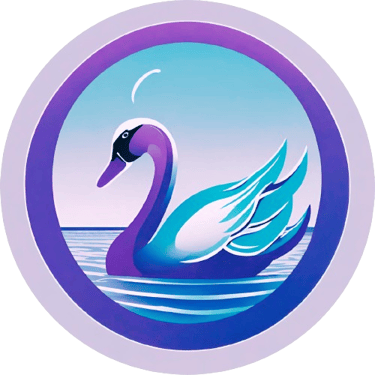Using Writing as a Tool for Self-Discovery


The Blank Page Is a Mirror
Before writing becomes art, career, or craft — it is conversation. The kind you have with yourself when the world gets too loud to hear your own thoughts. Every time you sit down to write, you face not the page but your reflection. The words you choose, the ones you avoid, the stories you return to — all of it reveals what’s stirring beneath your skin.
Writing is one of the few tools that lets you translate chaos into clarity. It slows down the noise long enough for you to see what you’re actually feeling. When you start writing without censoring yourself, without trying to be clever or correct, your subconscious starts to speak. That’s where discovery begins — not in grammar, but in honesty.
The Practice of Listening to Yourself
Most people write to express, but the best self-discovery happens when you write to listen. Journaling, freewriting, morning pages — whatever your ritual — are acts of attention. They make you tune in to the undercurrent of your mind.
When you spill words without agenda, patterns emerge. Maybe you notice you keep circling around one memory. Maybe you find that every rant about work ends with the same buried fear: not being enough. Writing doesn’t fix those things instantly — but it exposes them. It says, Here. This is what’s been whispering in the dark.
The page doesn’t judge. It simply reflects.
Writing as Emotional Cartography
We think of emotions as abstract, but through writing they become geography. The curve of anger, the valleys of regret, the quiet plateaus of peace — mapping them in words turns the invisible visible.
When you describe an emotion rather than suppress it, you gain distance. You stop being swallowed by the feeling and start seeing its contours. That small shift — from drowning in it to describing it — is the essence of self-awareness.
Every sentence becomes a road leading back to yourself.
Unmasking the Self You Hide
The act of writing peels layers. At first, you might write what sounds safe — the polished version of your life. But the deeper you go, the more the truth slips through the cracks. You start writing what you didn’t plan to admit. You realize the story you’ve been telling about yourself isn’t quite the whole truth.
That’s the magic — writing doesn’t just show you who you are; it shows you who you’ve been pretending to be.
And from that realization, change becomes possible. You can’t rewrite your life until you’ve read it honestly.
The Difference Between Reflection and Rumination
Let’s be clear: writing for self-discovery isn’t the same as marinating in your misery. There’s a difference between reflecting and re-living.
Reflection looks at the wound and names it. Rumination keeps picking at it. The goal is not to spiral, but to step outside your own narrative long enough to gain perspective. Write it, read it, learn from it, and then — close the notebook. Go live a little, so you have something new to write about tomorrow.
When the Page Starts Talking Back
Sometimes, your writing surprises you. A sentence lands that feels wiser than you are. That’s your intuition taking the wheel. The more you practice writing as self-inquiry, the stronger that voice becomes. It starts offering insight instead of just reflection.
That’s the moment writing stops being therapy and starts becoming transformation. You realize you’re not just processing life — you’re shaping it.
Writing Beyond Words
Self-discovery through writing doesn’t have to stay in notebooks. It bleeds into everything — your relationships, your choices, your art. You start noticing when you’re acting out of alignment with what you’ve written as true. Your words hold you accountable.
They remind you: this is who you said you were becoming. Don’t forget.
The page becomes both confessional and compass.
Prompts for the Brave
If you want to use writing as a true mirror, start with questions that cut through the surface:
What am I afraid to admit, even to myself?
What patterns do I keep repeating, and why?
When do I feel most alive?
Who would I be if I stopped performing?
Write the answers without editing. The goal isn’t to be eloquent; it’s to be honest. Clarity comes later.
The Quiet Revolution of Knowing Yourself
In a world that rewards noise, writing teaches you to value quiet. To find strength in stillness. It’s not about becoming a better writer — it’s about becoming a more truthful human.
Self-discovery isn’t a one-time event; it’s a lifelong revision process. The draft of who you are today will look different next year. That’s okay. The goal isn’t perfection; it’s presence.
Keep showing up to the page, even when it feels uncomfortable. Especially then. That discomfort is growth knocking on the door.
Write to Remember Who You Are
Writing as self-discovery isn’t self-indulgence. It’s self-maintenance. It’s how you return to your own voice when the world starts speaking too loudly in your head.
The more you write, the more you’ll find that your story isn’t static — it’s fluid, unfolding, alive. And somewhere between the lines, you’ll realize: you were never lost. You were just waiting to be written.
